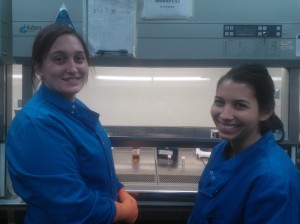Exon Skipping
COST Action BM1207
| This COST Action aimed to advance the development of antisense-mediated exon skipping for rare diseases, using Duchenne muscular dystrophy, for which this approach is currently tested in phase 3 clinical trials, as a showcase. The Action involved all key stake holders (scientists, clinicians, regulators, industry and patients) this COST Action aims to overcome challenges through networking to allow clinical implementation of antisense-mediated exon skipping for as many rare disease patients as possible.
This Action has now ended (April 2017). |
 |
Several challenges hamper its development to wide clinical application:
- There is no standardized protocol for important biological outcome measures, such as dystrophin restoration
- The approach is mutation specific; development for patient subgroups is challenging as most mutations are rare
- Fragmentation: several European groups work on preclinical optimization
- There is therapeutic misconception amongst patients and unrealistic expectations
This COST Action will address the described issues through:
- Meetings and training to standardize outcome measures
- Meetings with regulatory authorities to discuss alternatives to develop this approach for small patients groups
- Networking workshops where unpublished data are shared confidentially between Parties to foster synergistic work and avoid duplication
- Training of young scientists in unbiased and clear communication to patients
Networking is crucial for research in the orphan disease field and this model is applicable to other rare diseases for which exon skipping is currently in preclinical development. Groups involved are anticipated to join the Action when their research moves towards the clinical trial phase.
For more details download the Memorandum of understanding for this COST Action, which contains a detailed outline of the aims, objectives and workplan for BM1207.
Copyright © 2024 · Dynamik-Gen on Genesis Framework · WordPress · Log in
